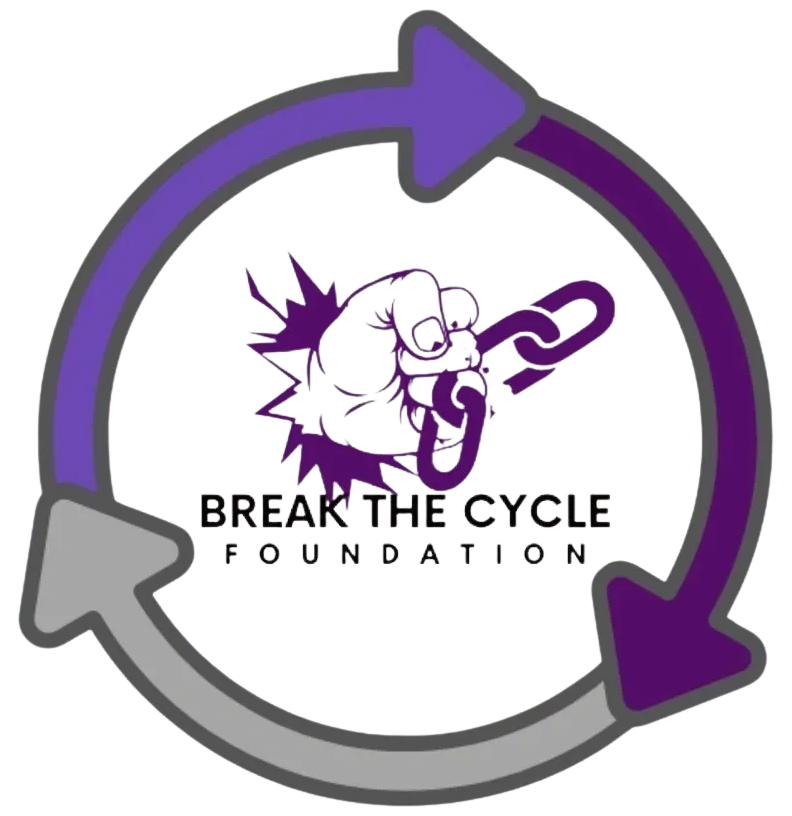Understanding Substance Use Disorder
Definition and Impact
Substance Use Disorder (SUD) is a treatable mental disorder affecting an individual’s brain and behavior. This disorder hinders a person’s ability to control their use of substances such as legal or illegal drugs, alcohol, or medications. The severity of SUD can range from moderate to severe, with addiction being the most severe form.
The impact of substance use disorder is profound, affecting both the individual and those around them. SUD can lead to significant changes in brain structure and function, resulting in intense cravings, distorted thinking, abnormal movements, and personality changes (American Psychiatric Association). These changes can impair a person’s judgment, decision-making, learning, memory, and control over behavior.
Among the various types of SUD, alcohol use disorder is the most prevalent in the U.S. (Cleveland Clinic). Recognizing the disorder and seeking treatment is crucial for recovery. Treatments can be provided in different settings, including outpatient programs, inpatient programs, residential programs, and interim care, depending on the severity and individual circumstances (SAMHSA).
Diagnosis and Evaluation
Diagnosing substance use disorder involves a comprehensive evaluation by a medical professional to identify the presence and severity of the disorder. This assessment is critical to developing an effective treatment plan tailored to the individual’s needs.
The intake and assessment process typically includes a series of steps:
- Clinical Interviews: Gathering information about the individual’s substance use history, mental health status, and other relevant factors.
- Standardized Screening Tools: Utilizing questionnaires and tools to assess the extent of substance use and its impact on the individual’s life.
- Physical Examination: Conducting a physical examination to identify any health issues resulting from substance use.
- Laboratory Tests: Performing tests to detect the presence of substances in the body and evaluate overall health.
Accurate diagnosis is vital for crafting individualized treatment plans that address both the substance use disorder and any co-occurring mental health issues. At Break The Cycle Foundation, we emphasize a thorough evaluation process to ensure each person receives the most appropriate care and support.
Understanding and addressing substance use disorder is a complex but essential part of recovery. By providing comprehensive assessment and personalized treatment, we can make a significant difference in the lives of those affected by SUD. Learn more about our approach to individual counseling for addiction and group therapy for substance use on our website.
Treatment Approaches for SUD
Understanding what is substance use disorder and how is it treated is crucial for managing the condition effectively. At Break The Cycle Foundation, we offer comprehensive and personalized treatment plans to help individuals in their recovery journey.
Withdrawal Management
Withdrawal management is the initial step in treating substance use disorder (SUD). It involves abstaining from the substance to allow it to leave the body safely. This process can be challenging and requires medical supervision to manage potentially severe withdrawal symptoms. Medications may be offered to lessen these symptoms, making the withdrawal process more comfortable and safer for the individual.
| Symptom | Possible Medication |
|---|---|
| Anxiety | Benzodiazepines |
| Insomnia | Sleep Aids |
| Nausea | Antiemetics |
These medications are part of our holistic approach to ensure that clients are as comfortable as possible during this critical phase of treatment. For more details, visit our section on what to expect during your first outpatient therapy session.
Individualized Treatment Plans
Every person’s experience with SUD is unique, so individualized treatment plans are essential. These plans are tailored to meet the specific needs of each client. We conduct thorough evaluations and assessments to design a plan that addresses all aspects of their condition.
Key components of individualized treatment plans include:
- Medical Assessment: Evaluating physical health and determining any co-occurring conditions.
- Counseling and Therapy: Personalized sessions that may include individual counseling and family involvement.
- Medication Management: Utilizing FDA-approved medications to assist in recovery, such as those used in methadone maintenance programs.
For a deeper understanding of how we develop and manage these plans, explore our guide on setting realistic recovery goals with your care team.
Therapies and Medication
Therapies and medication play integral roles in our treatment approaches. Cognitive-behavioral therapy (CBT), dialectical behavior therapy (DBT), and experiential therapy form the backbone of our therapeutic strategies. Each of these methods has proven effective in addressing the psychological aspects of SUD (Cleveland Clinic).
| Therapy Type | Purpose |
|---|---|
| CBT | Changing negative thought patterns |
| DBT | Managing emotional distress |
| Experiential Therapy | Engaging in activities to uncover and resolve issues |
In conjunction with therapy, medications approved by the U.S. Food and Drug Administration (FDA) can help modify brain chemistry, alleviate cravings, and manage withdrawal symptoms. Combining these medications with therapy ensures a comprehensive approach to the treatment of SUD (Cleveland Clinic).
For more insights into how these therapies work, visit our sections on how structured counseling helps break the cycle of addiction and relapse prevention planning: core elements to include.
Co-Occurring Disorders
Mental Health and SUD
Individuals with Substance Use Disorder (SUD) often contend with other mental health disorders. Common co-occurring disorders include anxiety, depression, ADHD, bipolar disorder, personality disorders, and schizophrenia (NIMH). Addressing these co-occurring conditions is crucial for effective treatment, and we specialize in providing integrated care to tackle both SUD and mental health issues simultaneously.
| Mental Health Disorder | Percentage of SUD Patients (%) |
|---|---|
| Anxiety Disorders | 20% |
| Depression | 25% |
| ADHD | 9% |
| Bipolar Disorder | 7% |
| Personality Disorders | 15% |
| Schizophrenia | 5% |
Understanding the intertwined nature of SUD and mental health disorders allows us to implement comprehensive treatment plans. For more on our approach to tackling mental health within addiction treatment, see our detailed guide on how structured counseling helps break the cycle of addiction.
Tailored Treatment Approaches
At Break The Cycle Foundation, we understand that treating SUD and co-occurring disorders effectively requires a tailored approach. We provide individualized treatment plans that incorporate behavioral therapies, medications, and other supportive measures (NIMH). Our goal is to address the unique combination of disorders and symptoms each person faces.
Tailored treatment involves evaluating factors such as age, specific substances abused, and the exact mental health conditions present. Our comprehensive treatment options include:
- Behavioral Therapies: We use evidence-based methods such as Cognitive-Behavioral Therapy (CBT) and Dialectical Behavioral Therapy (DBT). These therapies help patients modify harmful behaviors and manage triggers.
- Medications: Appropriate medications can help manage both SUD and mental health symptoms. For example, methadone is used in opioid treatment programs, offering significant benefits in reducing cravings and withdrawal symptoms. Read more about the benefits of methadone in opioid treatment programs.
- Family Involvement: Engaging family members in the recovery process is vital for support and understanding. Therapy sessions often include family to reinforce support systems.
| Type of Therapy | Purpose |
|---|---|
| Cognitive-Behavioral Therapy | Modifies harmful thought and behavior patterns |
| Dialectical Behavioral Therapy | Combines mindfulness and behavioral change techniques |
| Medications | Manages cravings, withdrawal, and co-occurring symptoms |
| Family Therapy | Strengthens support networks and educates loved ones |
Our multidisciplinary team works closely with patients to create and adjust these individualized plans. To understand more about what these plans entail, you can read our article on individual counseling for addiction: what to expect.
By addressing structural, social, and individual barriers, we aim to make a significant difference in the lives of those struggling with SUD and co-occurring disorders. To further delve into our strategies and support methods, explore the importance of peer support groups and relapse prevention planning in sustained recovery.
Behavioral Therapies for SUD
Behavioral therapies play a central role in treating Substance Use Disorder (SUD) by addressing the underlying psychological factors and promoting sustainable recovery. At Break The Cycle Foundation, we implement various therapeutic modalities to cater to the unique needs of our clients. Here, we focus on Cognitive-Behavioral Therapy (CBT), Dialectical Behavioral Therapy (DBT), and Experiential Therapy.
Cognitive-Behavioral Therapy (CBT)
Cognitive-Behavioral Therapy (CBT) is a structured, one-on-one therapy approach that helps patients reshape negative thoughts. This transformation enables clients to better navigate life’s challenges. CBT can be used alone or in conjunction with other therapies, aiming to manage symptoms, prevent relapse, and overcome emotional trauma (Mayo Clinic). For a deeper understanding of individual therapy sessions, visit individual counseling for addiction: what to expect.
| Aspect | Details |
|---|---|
| Goals | Reshape negative thoughts, manage symptoms, prevent relapse |
| Method | Structured, one-on-one |
| Additional Use | Can be combined with other therapies |
Dialectical Behavioral Therapy (DBT)
Dialectical Behavioral Therapy (DBT) is a form of CBT that emphasizes the development of behavioral skills. DBT helps individuals manage emotions, improve relationships, resolve conflicts, and handle stress (Psychology Today). It has proven effective in treating both addiction and various mental health diagnoses through individual therapy sessions and educational group settings. For more, visit group therapy for substance use: how it supports recovery.
| Aspect | Details |
|---|---|
| Goals | Manage emotions, improve relationships |
| Method | Individual therapy, group education |
| Focus | Behavioral skill development |
Experiential Therapy
Experiential therapy is an engaging treatment method that involves hands-on learning and activities to explore the subconscious thoughts and feelings of individuals in recovery. This therapy is effective in addressing deeply rooted emotional issues, thereby promoting long-term healing.
| Aspect | Details |
|---|---|
| Goals | Address deep-seated emotional issues |
| Method | Hands-on learning, activities |
| Focus | Subconscious thoughts exploration |
At Break The Cycle Foundation, we tailor our therapeutic approaches to meet individual needs, ensuring comprehensive and effective treatment for Substance Use Disorder. To understand how we address different aspects of addiction and recovery, visit how structured counseling helps break the cycle of addiction.
We believe that with the right behavioral therapies, anyone can achieve a lasting recovery. For more information on how we support your journey to sobriety, explore our resources on relapse prevention planning: core elements to include and setting realistic recovery goals with your care team.
Support for Recovery
At Break The Cycle Foundation, we understand that support for recovery goes beyond individualized treatment. It involves a holistic approach that includes family and specialized therapies.
Family Involvement
Family involvement is crucial in treating substance use disorder. Family therapy shifts the focus from the individual to the entire family system, aiming to resolve substance use issues collaboratively. This approach often involves facilitating discussions, problem-solving, and educating family members to understand addiction as a disease (National Library of Medicine).
Families play a significant role in recovery, providing emotional support and understanding. Family therapy helps families:
- Understand addiction and its impact.
- Develop healthier communication patterns.
- Build problem-solving strategies.
- Offer consistent support for recovery.
Research highlights that family support is a significant facilitator for individuals seeking treatment (NCBI). For more information on how structured counseling can assist families in coping with addiction, visit our guide on how structured counseling helps break the cycle of addiction.
Eye Movement Desensitization and Reprocessing (EMDR)
Eye Movement Desensitization and Reprocessing (EMDR) is a specialized therapy often used in conjunction with other treatments for substance use disorder. It helps individuals process traumatic experiences that may contribute to addiction. EMDR employs guided eye movements to facilitate the processing of distressing memories.
This therapy aims to:
- Reduce the emotional impact of traumatic memories.
- Develop healthier coping mechanisms.
- Improve emotional regulation.
Incorporating EMDR into the treatment plan can enhance the effectiveness of traditional therapies like Cognitive-Behavioral Therapy (CBT) and Dialectical Behavioral Therapy (DBT). For more about what to expect in individual counseling sessions, see our article on what to expect during your first outpatient therapy session.
At Break The Cycle Foundation, we prioritize the integration of family involvement and specialized therapies like EMDR to ensure comprehensive support for recovery. For more on how we facilitate overcoming treatment barriers, see our article on understanding the intake and assessment process.
Overcoming Treatment Barriers
Breaking down barriers to Substance Use Disorder (SUD) treatment is a critical aspect of our mission at Break The Cycle Foundation. By addressing structural, social, and individual obstacles, we strive to make our comprehensive addiction treatment services accessible to everyone in need.
Addressing Structural, Social, and Individual Barriers
Barriers to treatment are multifaceted, encompassing structural, social, and individual dimensions. According to an NCBI study, 37 structural barriers were identified, making them the most frequent obstacles. These barriers include limited treatment options, especially in rural areas, complicated insurance policies, and accessibility issues.
| Barrier Type | Number of Barriers | Examples |
|---|---|---|
| Structural | 37 | Limited treatment options, insurance complications |
| Social | 19 | Stigma, family dynamics |
| Individual | 21 | Personal beliefs, fear of judgment |
Addressing these requires a multifaceted approach:
- Structural Barriers: Improvement in healthcare policies, increased funding for treatment facilities, and better transport services.
- Social Barriers: Community education to reduce stigma, enhanced family support systems.
- Individual Barriers: Personalized counseling, improving patient motivation.
At Break The Cycle Foundation, we focus on creating an inclusive environment that embraces the diverse needs of our clients. More information on how structured counseling helps break the cycle of addiction can be found in our article on how structured counseling helps break the cycle of addiction.
Importance of Peer Support Groups
Peer support groups are instrumental in the recovery journey. These groups offer a sense of community and shared experience, which can be incredibly empowering for individuals dealing with SUD.
- Emotional Support: Sharing experiences with peers who have faced similar challenges can provide immense emotional relief and reduce feelings of isolation.
- Accountability: Regular meetings create a structured environment where individuals can hold each other accountable.
- Motivation: Observing the progress of peers can inspire and motivate continued personal effort in the recovery process.
Studies emphasize the importance of social facilitators in SUD treatment, including the significant role of family and community connections (NCBI). We recommend incorporating peer support groups as a consistent part of treatment plans. More on this topic is covered in our guide to group therapy for substance use: how it supports recovery.
In addition to peer support, family involvement is a crucial element in overcoming treatment barriers, as detailed in our section on family involvement. For those looking to learn more about specific individual counseling methods, our piece on individual counseling for addiction: what to expect offers great insights.
For more comprehensive strategies on planning your recovery, our article on setting realistic recovery goals with your care team is a great resource. Understanding these elements is key to breaking the cycle of addiction and achieving lasting sobriety.







